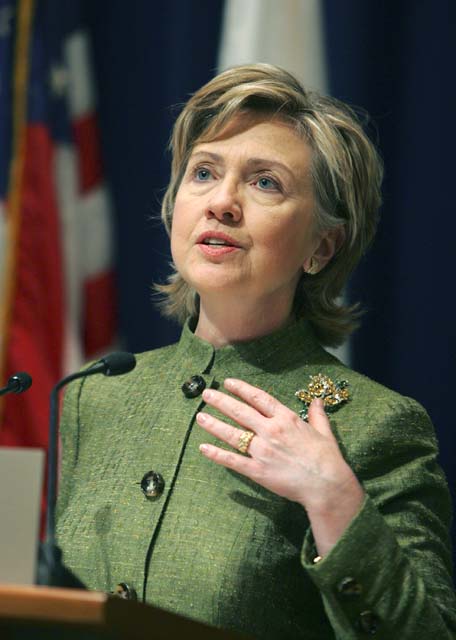Clinton: US could rethink missile defence if Iran drops ambitions
 Washington - US Secretary of State Hillary Rodham Clinton suggested Tuesday the United States could "reconsider" placing a missile-defence system in Eastern Europe if Iran dropped its pursuit of nuclear weapons, but cautioned that the Islamic state is a "long way" from showing a desire to change.
Washington - US Secretary of State Hillary Rodham Clinton suggested Tuesday the United States could "reconsider" placing a missile-defence system in Eastern Europe if Iran dropped its pursuit of nuclear weapons, but cautioned that the Islamic state is a "long way" from showing a desire to change.
Clinton met with Czech Foreign Minister Karel Schwarzenberg, whose country has agreed to host the radar site for the system.
"If we are able to see a change in behaviour on the part of the Iranians with respect to what we believe to be their pursuit of nuclear weapons ... we will reconsider where we stand," Clinton said. "But we are a long, long way from seeing such evidence of any behavior change."
Clinton did not say whether the United States under President Barack Obama would proceed with the missile-defence system, which includes basing 10 interceptors in Poland in a plan developed under former president George W Bush to counter Iran's growing ballistic missile capability.
The Obama administration has not stated its position on the missile-defence plans as it conducts a review of existing foreign policy across a wide range of issues, but has hinted at the possibility of slowing the deployment.
The Bush White House intended to have the system in place by 2013. But Democrats have been more sceptical than Republicans about the technical feasibility of long-range missile defence and its hefty price tag.
"We expect any system that we deploy to be able to operate effectively to achieve the goals that are set," Clinton said.
The plans have angered Russia, which views as threatening the deployment of a system to former Warsaw Pact countries, while Washington has argued the small number of interceptor missiles would not disrupt Moscow's vast strategic nuclear arsenal. The dispute has helped drag US-Russian relations to their lowest point since the end of the Cold War.
Vice President Joe Biden said at a weekend security conference in Munich that the United States would closely consult with Russia on the missile-defence plans as part of a broad-ranging dialogue with Moscow to explore ways the countries can cooperate.
Schwarzenberg, whose country holds the rotating EU presidency, and Clinton also discussed NATO's role in the conflict in Afghanistan, energy security and the Middle East. (dpa)